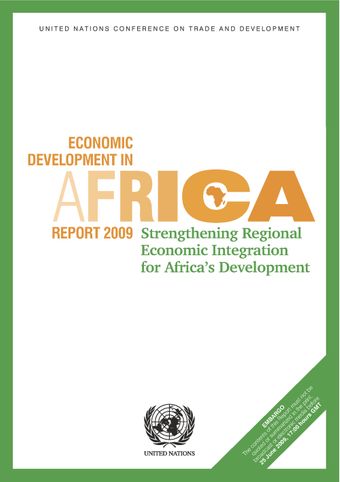Introduction

- Author: United Nations Conference on Trade and Development
- Main Title: Economic Development in Africa Report 2009 , pp 1-4
- Publication Date: June 2009
- DOI: https://doi.org/10.18356/43e97acb-en
- Language: English French
- Previous Chapter
- Table of Contents
- Next Chapter
The importance of regional economic cooperation and integration as a means for accelerating and consolidating economic and social development has long been recognized by African decision-makers. Unity, cooperation and integration of Africa were long-standing aspirations of many African leaders, including George Patmore, W.E.B Dubois, Marcus Garvey, as well as African nationalists such as Kwame Nkrumah who, in his book Africa Must Unite, called for African unity. Hence the call for integration is well-rooted in African history, albeit, as in other regions, the initial aim was more to gain greater political clout and voice in the international arena. As the challenges of globalization and interdependence made their impact felt on the countries of the African region, including the possible marginalization of the African continent, the imperative of integration took centre stage once again. The Organization for African Unity (OAU) was established in 1963 to integrate African economies, solve conflicts within and among African countries, bring development, and improve the standard of living of Africans (Olubomehin and Kawonishe, 2004). Several African subregional groupings were subsequently formed. In June 1991, the Abuja Treaty was signed, which provided for the creation of the continent-wide African Economic Community (AEC) by 2027. The formation of regional economic cooperation arrangements serve to provide the underpinnings for the planned AEC.
-
From This Site
/content/books/9789211562958c005dcterms_title,dcterms_subject,pub_keyword-contentType:Journal -contentType:Contributor -contentType:Concept -contentType:Institution105



